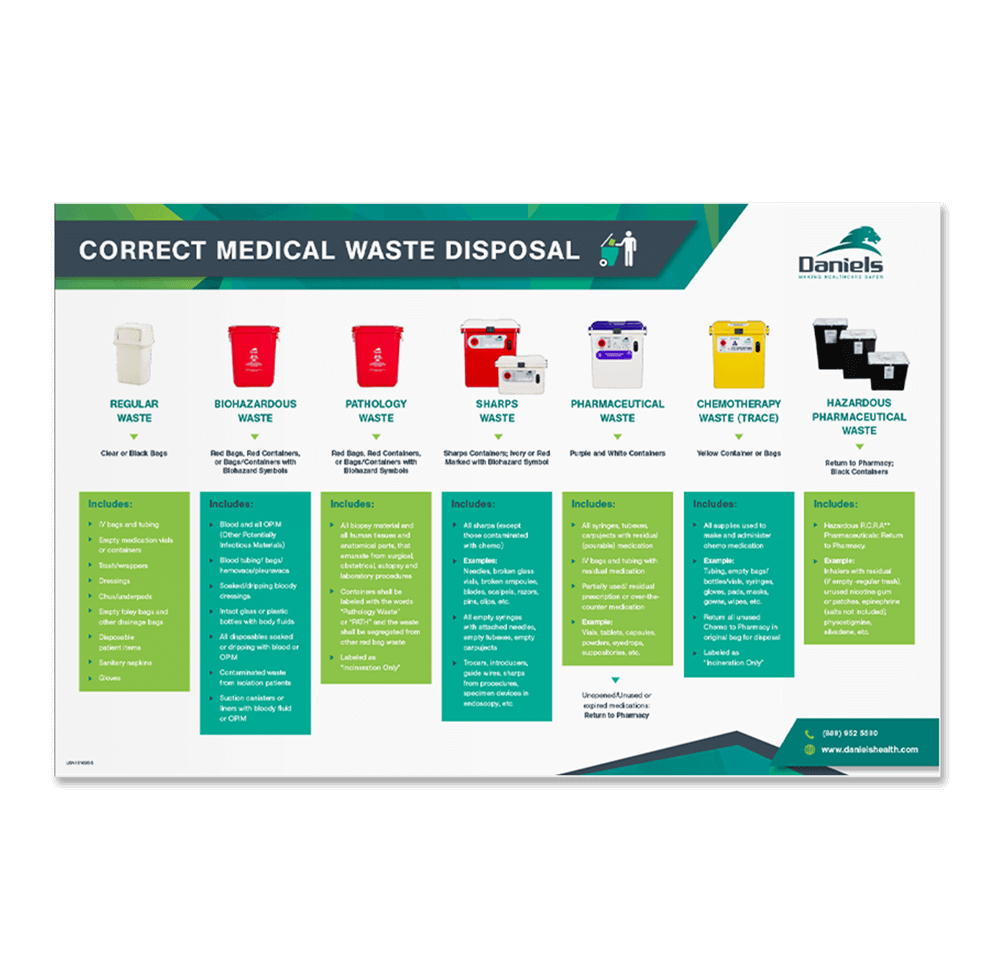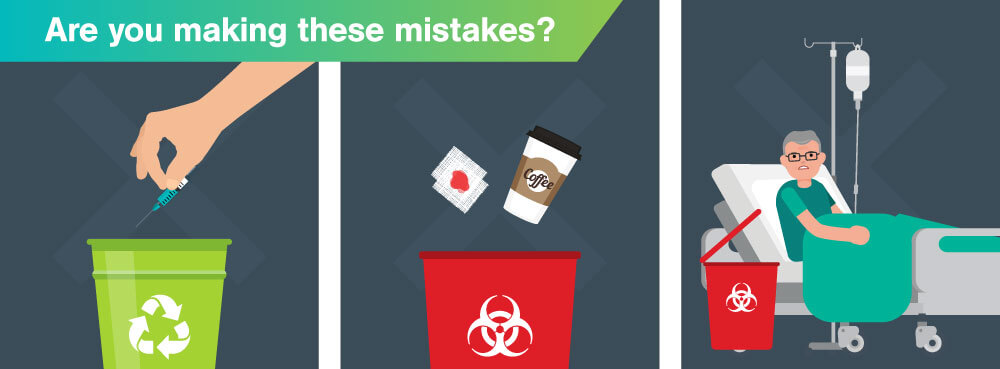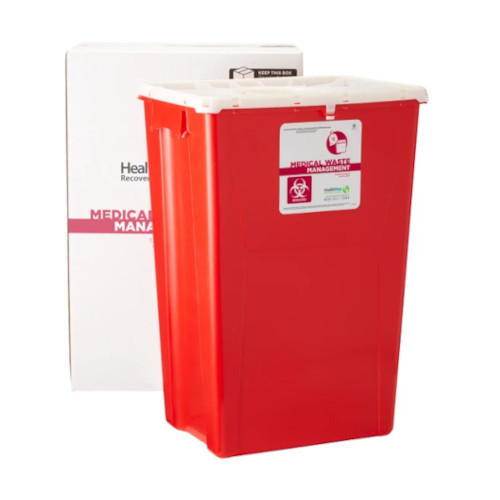Comprehensive Medical Waste Disposal Services for Healthcare Facilities
Comprehensive Medical Waste Disposal Services for Healthcare Facilities
Blog Article
Navigating Medical Garbage Disposal: Crucial Solutions for Health Care Facilities
In the complex landscape of medical care operations, the administration of clinical waste is a vital element that demands thorough focus. Healthcare centers, whether little centers or large hospitals, are entrusted with the responsibility of handling, treating, and getting rid of a wide range of clinical waste streams. The complexities entailed in browsing via the regulative requirements, guaranteeing correct waste segregation, and executing risk-free collection and transport processes are vital. Comprehending the crucial services that sustain clinical waste disposal is not just an issue of compliance yet additionally a fundamental component in protecting public health and environmental wellness. The ins and outs of this procedure are essential for health care facilities, and the experience provided in this realm plays a pivotal duty in maintaining the integrity of healthcare systems.
Regulatory Compliance Assistance
For healthcare centers, ensuring regulatory conformity assistance is essential to keep correct handling and disposal of medical waste. By partnering with regulatory conformity experts, healthcare facilities can stay current on progressing guidelines, minimize risks linked with incorrect waste disposal, and inevitably add to a more secure and a lot more lasting atmosphere for all.
Waste Segregation Guidance

Medical care facilities must provide clear standards and training to personnel on exactly how to set apart waste properly. This consists of dividing basic waste from hazardous materials such as sharps, infectious waste, pharmaceuticals, and chemical waste. Color-coded containers, tags, and signs are typically utilized to help in waste segregation practices. Regular audits and monitoring of waste segregation processes are necessary to recognize any type of issues and make required enhancements.
Collection and Transport Providers

Correct collection and transport services are crucial parts of the medical waste disposal procedure in healthcare centers. These services ensure that dangerous products are taken care of safely and in conformity with laws to protect both the atmosphere and public health and wellness. Medical care facilities count on specialized waste monitoring firms to offer effective collection and transportation services tailored to their needs.
Clinical waste collection includes segregating different kinds of waste at the point of generation, making use of color-coded containers or bags to distinguish in between general, unsafe, pharmaceutical, and other waste streams. Educated personnel should perform this job to stop contamination and ensure correct disposal. As soon as accumulated, the waste is carried in devoted cars outfitted to manage harmful products securely. These lorries abide by rigorous safety and security criteria and adhere to assigned courses to qualified therapy facilities for disposal through approaches such as incineration, sterilization, or landfilling.
Therapy and Disposal Solutions
In the world of clinical waste disposal for medical care centers, after the critical stage of collection and transportation services, the emphasis shifts towards carrying out efficient treatment and disposal options. Therapy options usually include processes such as autoclaving, which utilizes heavy steam under stress to decontaminate the waste. This method is frequently utilized for transmittable waste that has to be provided non-hazardous prior to disposal. Another widespread therapy technique is incineration, where waste undergoes heats in regulated settings to reduce its quantity and remove pathogens.
Disposal remedies incorporate the final action in the clinical waste monitoring procedure. Facilities may select land fill disposal, where treated waste is meticulously deposited in designated locations. Medical Waste Disposal Services. Conversely, medical care facilities can pick to utilize waste-to-energy facilities, which blaze waste to create power. Reusing and source healing are also acquiring grip as lasting disposal choices for sure types of clinical waste materials.
Efficient therapy and disposal remedies are paramount in guaranteeing conformity with policies and safeguarding public health and wellness and the atmosphere. Healthcare facilities must carefully assess and pick proper methods that line up with their waste administration goals and sustainability campaigns.
Personnel Training and Education And Learning

To successfully manage clinical garbage disposal in health care centers, thorough personnel training and education and learning play a vital role in making certain adherence to governing needs and keeping a risk-free environment. Appropriate training equips here staff with the understanding and skills needed to take care of different kinds of medical waste, segregate them correctly, and package them you can find out more safely for disposal. By educating workers on the threats connected with inappropriate handling of clinical waste, centers can minimize the likelihood of mishaps, contamination, and regulatory offenses.

Conclusion
To conclude, medical care centers count on crucial clinical garbage disposal services to make certain regulatory compliance, appropriate waste segregation, safe collection and transportation, reliable therapy and disposal, along with staff training and education and learning. These solutions play a crucial duty in keeping the wellness and security of both healthcare employees and the basic public, highlighting the relevance of correct management of clinical waste in health care setups.
For healthcare facilities, making certain regulatory conformity support is important to maintain appropriate handling and disposal of clinical waste. Waste partition entails categorizing different types of medical waste to ensure appropriate handling, treatment, and disposal. This consists of separating basic waste from dangerous products such as sharps, contagious waste, drugs, and chemical waste.Medical waste collection involves segregating different kinds of waste at the point of generation, using color-coded bags or containers to differentiate in between basic, dangerous, pharmaceutical, and other waste streams.In the realm of clinical waste disposal for healthcare facilities, after the crucial phase of collection and transportation click to investigate services, the focus changes in the direction of executing efficient therapy and disposal solutions.
Report this page